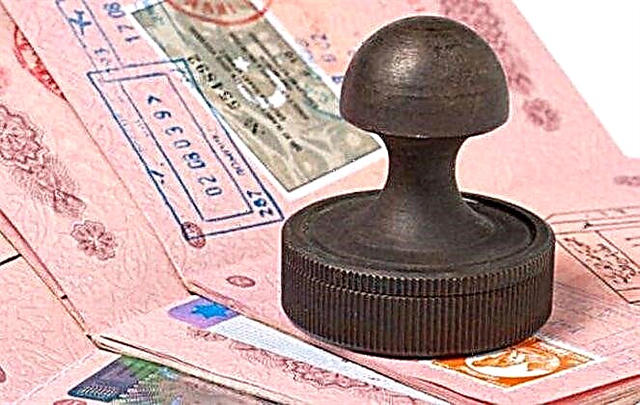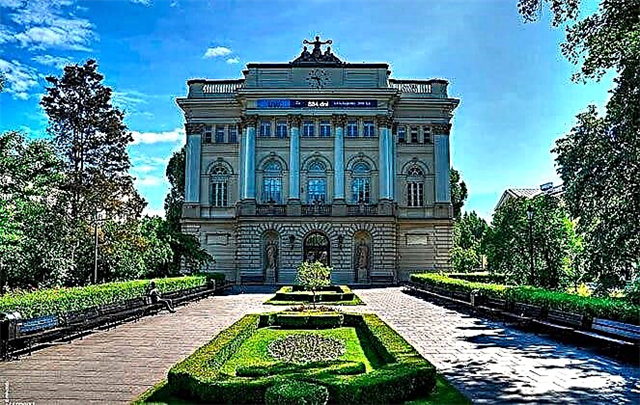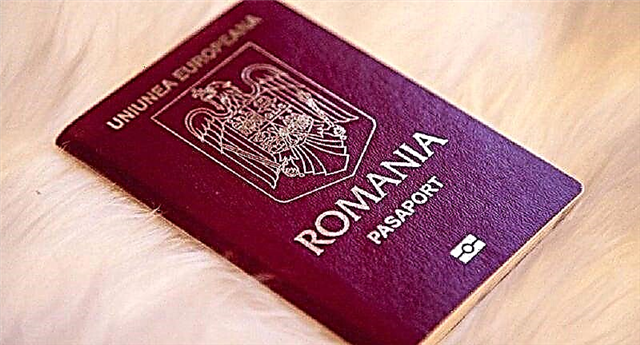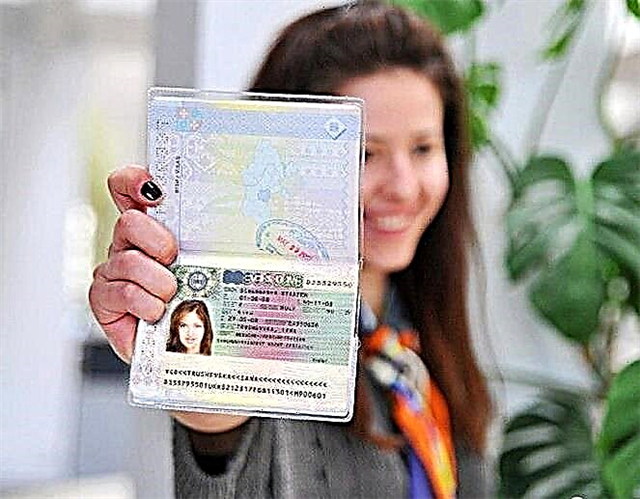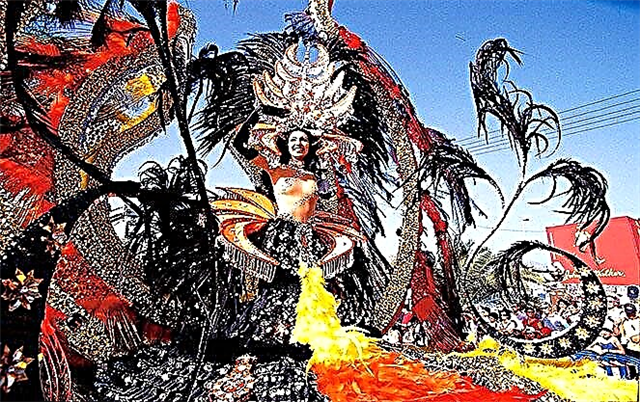When you first visit Spain, you suddenly realize that this amazing country, alluring with its gentle turquoise sea, stunning Mediterranean cuisine and architectural masterpieces, is celebrating something every day. Gradually, the understanding comes that the holidays in Spain are not just important events marked in the calendar, but the lifestyle of people who inhabit not only big cities, but also remote Spanish villages.

Scrolling through the official holidays calendar
The State Gazette (or Official Government Gazette of Spain) - Boletìn Oficial del Estado (BOE) reports all official holidays of the year. It lists weekends nationwide.
So, in the current calendar year, the Spaniards rest 14 days, (10 of them are mandatory), celebrating:
- January 1 - New Year (Año Nuevo);
- January 6 - Epiphany or Day of the Magic Kings (Día de los Reyes Magos);
- March 30 - Good Friday (Good Friday) - celebrated before Easter. (This date is not fixed: every year the holiday falls on different days. So, in 2021 it will be celebrated on April 19);
- May 1 - International Workers Day (El Día internacional de los Trabajadores), or international work day (Día internacional del trabajo), or simply May Day (Primero de Mayo);
- August 15 - Dormition of the Most Holy Theotokos (La Asunción de la Virgen) or Virgin Augustus (Virgen de Agosto);
- October 12 - National holiday in Spain (Día de la Hispanidad);
- November 1 - All Saints Day (El Dia de Todos Los Santos);
- December 6 - Constitution Day in Spain;
- December 8 - Day of the Immaculate Conception of the Virgin Mary (lat.Immaculata conceptio);
- December 25 - Nativity of Christ (La Navidad).
In accordance with Spanish law, in each region of the country there can be no more than 14 public holidays per year, of which 9 are public holidays: these are national Spanish holidays. In addition, there must be at least two regional holidays.
On the list of nationwide "non-replaceable" holidays, the tenth day off is also marked on January 6 - Epiphany or Day of the Magic Kings (Día de los Reyes Magos), although it refers to general local holidays. None of the regions ever transfers this celebration to another date, it is celebrated in all autonomies of Spain. “The Coming of the Magi” is another name for it.
What other holidays are celebrated in Spain
Numerous Spanish holidays can be roughly divided into 3 categories: state (national), religious and regional (local). Moreover, these celebrations sometimes smoothly flow into each other, which gives them a new format. Many of those festivals that were previously considered religious, as indicated by the calendar, have evolved over time into lavish festivities with music, dancing and carnival costumes. However, it is precisely to religious holidays, of which there are endless numbers in the country, that Spanish Catholics are especially sensitive to.
Each individual region, large or small Spanish city has its own holidays, which differ in accordance with the local way of life, culture and traditions.
Fiesta is a favorite word of the Spaniards, which reflects their own understanding of the essence of the holiday - national, religious or folk. Sometimes several events coincide on the same day, and they are celebrated throughout the country. It also happens that the customs associated with one of the holidays "pass" to another, and new traditions of celebration appear.
This happened with The Day of Lovers. This colorful holiday is celebrated on April 23rd. And this date, as you know, is the day of remembrance of the greatest of the world writers - Miguel Cervantes Saavedra. In his honor, another holiday is celebrated on this day - the Day of the Book in Spain. Booksellers now have a custom of giving a red rose to anyone who buys a book.
Why did this tradition take root? Precisely because April 23 is St. George's Day or Sant Jordi (La Diada de Sant Jordi) - a kind of analogue of Valentine's Day. Therefore, the holiday is also called Valentine's Day here. Honoring two great writers - Cervantes from Spain and Shakespeare from England - the Spaniards combined the theme of love and literature.

There is also a legend about the battle of St. George with the dragon. From the drops of the slain dragon's blood, a red rose grew, which Saint George presented to the princess. Now on this day Barcelona is buried in roses. Traditionally, young people give girls bouquets of red roses, and girls give books to their chosen ones.
In Spain, holidays are also celebrated that could be called ritual. One of them is very reminiscent of the well-known Day of Ivan Kupala, when evil spirits are expelled by sacred fire and dances similar to the performance of a ritual.

The Spaniards called this holiday Saint Juan's Day (Fiesta de San Juan). It is sometimes called simply San Juan or Bonfire Night (Hogueras de San Juan). This holiday takes place on the shortest summer night from June 23rd to 24th.
Today it is one of the most beloved holidays of young people. On the beaches, young people kindle bonfires, jump over them, and then arrange dances here. Tradition says that this is exactly how purification takes place. Alicante is the most popular place where this holiday is especially revered, although it is celebrated throughout Spain.
How Spaniards celebrate their birthday
It may seem strange to some that the attitude of the Spaniards to such a holiday as Birthday. If you are invited to visit, then you do not have to worry about the gift: the birthday person will be glad if you just bring the cake you baked. "Gracia!" ("Thank you!") - you will hear in response from the hero of the occasion while you click on his forehead as many times as he is.
In Spain, it is customary to celebrate a birthday without adhering to a specific date. You can celebrate throughout the month on different days and in different companies: with your family, with close friends, with colleagues.
As a rule, such celebrations are held not at home, but in small and cozy restaurants, of which there are a great many in Spain. During the noisy fun, all the guests become "relatives" of the birthday man, everyone hugs and sings together at the table.
Women's holidays are so different
As in the old days, keeping family traditions for a Spaniard is sacred. Especially respectful in every Spanish family are treated to the mistress of the house - the mother. Therefore, it is not surprising that the holiday - Mother's Day (El Dia de la Madre) occupies an important place in the Spanish calendar and is celebrated as a day dedicated to the woman who protects the hearth at home.
The whole family prepares for this day in advance: children, secretly from their mothers, prepare touching surprises for them, made with their own hands. And adults buy gifts with the symbols of the holiday, which is celebrated in Spain on the first Sunday of May.

It must be said that today Spanish mothers are not just housewives who have devoted all their time to caring for home and family. They are modern Spanish women and therefore are able to combine housework and work. Taking care of their children with love, they continue to be successful in their professional activities and creative teams.
The features of the character of the Spanish flu are manifested on March 8. International Women's Day, having long lost its revolutionary beginning, is celebrated all over the world today as a holiday of women's smiles and touching gifts, presented with tenderness by beloved men. But not in Spain.
Here, March 8 is associated with the protest of women, when they have every right to publicly express their discontent on any occasion.
At the beginning of spring, on this day, women's manifestations are held annually in the form of organized street processions.They are attended by representatives of various social movements, political associations and just activists.
The protests are held under different slogans: whether it concerns economic problems in the country or legislative initiatives aimed at improving life. Independence is demanded by caring Catalans. Feminists have their own slogans. It is noteworthy that March 8 in Spain is not a day off, but an ordinary working day.
There are such holidays in Spain
Not all Spanish holidays are filled with ideological content. Some of them, according to the majority, are completely devoid of any common sense, and some are even shocking with cruelty. For example, Day of the Goose (Antzar Eguna).

It is celebrated annually in Lekeitio, a small town of Spanish fishermen. It looks like this: a rope is pulled tightly over the water surface, on which a goose hangs. Let's calm down right away: the bird is lifeless. And this is thanks to activists - conservationists who protested the use of live geese during the celebration, as it was until recently.
Residents of the town watch as a competitor swims up in a boat and grabs a goose neck. Then, swinging in the air, rips off the poor bird's head and plunges into the water along with the "trophy". The winner receives a headless carcass as a reward.
Everybody's favorite holidays
In what the Spaniards are not original, it is in the recognition of New Year's holidays as the most beloved ones. The Christmas market, fabulous and colorful, since the end of November invites Spaniards in every city to stock up on gifts for loved ones. On Christmas Eve, the Spaniards set up a rich table, richly furnished with dishes.
On New Year's Eve, a lavish feast is not accepted: one main dish, some snacks, champagne and wine.
It is customary to celebrate the New Year on the main square of the city. That's where the real fun is! A noisy crowd of people gathers around the New Year's symbol - a Christmas tree - and awaits the strike of the main city clock. As soon as the fight begins, you need to eat 12 grapes - according to the number of months in a year. This, according to the Spaniards, will bring prosperity and happiness.

On New Year's Eve, street performances, dances, carnival processions are organized. There is a lot of light and noise everywhere, since the general fun is accompanied by the continuous rumble of firecrackers and peals of fireworks.
Holidays holy to all
Like all peoples, the Spaniards celebrate the holidays that they consider to be holy. These include Holy Week (Semana Santa) - the period between the end of fasting and the beginning of Easter. This is the time when in Spain everything that is connected with the crucifixion of Christ is remembered.

Theatrical events of various religious communities are held on city streets. The most important processions can be seen on Maundy Thursday (Jueves Santo) and Good Friday (Viernes Santo). It is on Good Friday that the death of Christ and his burial are celebrated, therefore, on this day, loud music is not heard: everyone is grieving and praying.
Each city has its own traditions of celebrating Easter. Processions are very bright and magnificent in Valladolid and Seville, the capital of Andalusia.
Different cities in Spain even "compete" with each other in the beauty and expressiveness of the celebration. But almost everywhere you can see how men, dressed in traditional clothes, carry a pasos on their shoulders - a platform with images of religious scenes and, above all, Christ and the Mother of God.
Many prefer to participate in these processions, as it is considered an honor to be on the Spanish streets during religious processions.
The Spaniards also consider the celebration of the Day of the Dead to be saints. They believe that it is on this day that the souls of the dead visit their relatives and friends, who now live and remember the departed. When visiting cemeteries, people create altars from various family heirlooms and photographs on the graves of relatives who have passed away.
Sometimes on the Day of the Dead, which is celebrated on November 1 and 2 (All Saints' Day), the Spaniards bring to the graves the favorite food and drinks of the dead. Autumn flowers are used for decoration, attracting, according to legend, the souls of the dead. Remembering at the tombstone various facts from the life of the deceased, relatives often talk about fun: this is how, in their opinion, one can induce the soul of a dead person to visit the living.
Holidays that citizens are proud of
City Day is a holiday that none of its residents will ever miss. In every city or town, the Spaniards celebrate with special pride the celebrations dedicated to their small homeland. In this case, the days of celebration in different cities can be assigned to dates that do not coincide in the current or next year. However, there are holidays that are celebrated strictly on a specific day.

Madrid Day (Fiesta de la Comunidad de Madrid) is always celebrated on May 2 (Dos de Mayo). It was this date that went down in the history of the country as a symbol of the national struggle for the independence of the Spaniards. On May 2, 1808, an uprising broke out in the Spanish capital against the Napoleonic invaders. The patriots of Madrid "awakened" the entire country, calling for a broad liberation movement against the invaders. This was the beginning of the Spanish-French War.
The military parade, which takes place in the city center, is an obligatory part of the traditional celebration of Madrid Day today.
Residents of the city, knowing its history, are very proud of this. In different districts of the Spanish capital on this day, festive concerts, theatrical performances, various performances for adults and children are held right on the streets of the city-birthday.
Catalonia Day is celebrated on September 11th. This is an important historical date for the Catalans, proclaimed by the government in 1980. Official acts are held on this day in Barcelona and other cities - Girona, Tarragona. The main event is the March for Independence, in which a huge number of Catalans traditionally participate.
The independence of Catalonia is the main theme of this holiday. In September last year, it acquired a bright political color when Catalonia became the object of close attention of the world community. In every city, you can see national flags on the balconies of residential buildings, and expressive Catalan speech can be heard on the streets.
Other cities in Spain also celebrate their own holidays associated with the Day of the patron saint of the city or important historical events in the region. The list of these holidays is so long that it seems that the fun does not stop for a single day.
They are widely celebrated - with vivid performances, noisy folk festivals. It is known that more than two hundred holidays in Spain are also of international importance, as they are of interest to foreign tourists coming to the country.
Carnivals - celebrations that give joy
In February, the season of Spanish carnivals and festivals opens. Each of these large-scale holidays has its own history and traditions. Taking into account the climatic and geographical features of a particular region, its cultural preferences, each holiday has its own unique taste.
The largest carnival is Santa Cruz de Tenerife. Carnivals in Spain are no less popular than the sensational carnivals in Rio de Janeiro. Therefore, the Spanish carnival in Tenerife is recognized as the second most important in the world after the famous Brazilian, and in Europe - the first.

Recently, carnivals have also been held in other Canary Islands. This is due to the historically established traditions and features of social development on the territory of the archipelago.
The beginning of spring marks Gran Canaria's almond festival (Fiesta de almendro en flor). On the days when almond blossoms turn pink and white, residents and visitors to the island enjoy almond wine and local almond sweets.
Thus, holidays, closely related to the natural world, are a means of communication between people and the environment. This is one of the favorite holidays of the islanders, but it is not celebrated on the same scale as traditional carnivals.
Carnival February 2021 swept through Spain with a noisy, cheerful, bright flash.In Barcelona, celebrations usually last for seven days, starting with “Fat” (or “Wide”) Thursday (Jueves Lardero), when traditional tortilla and Spanish egg sausage are held in high esteem by the Catalans. Carnestoltes - a cheerful man - the main character of the holiday.
Carnivals in Madrid are colorful and spectacular: costumes of juicy flowers and an impressive procession of jesters in smart masks seem to take us to Venice.
The atmosphere of the carnival in Cadiz is filled with satire and humor, often aimed at celebrities and politicians in Spain. The carnival in Solson seems absurd and ridiculous, where the main ritual of the holiday is considered to be "hanging a donkey".

Carnival in Sitges has a completely different flavor. Loud, fireworks-filled parties with no complexes, where men and women are equally adorned with feathers and sequins, are popularly known as gay carnivals.
Tourists are not disappointed when they find themselves in Galicia: they become witnesses and participants of eight carnivals. Six of them take place in the province of Ourense. Each of the holidays is original and filled with many interesting events.
Ibiza is not far behind, but rather ahead of other regions of Spain in the number of holidays that are held throughout the year throughout the famous island. In February, merry carnival parades "light up" in almost every city and village.
One of the best carnivals in Spain, noted in the list of National Interest of Tourists, is the celebration in Badajoz (Ektremadura). A lot of performances, competitions, spectacular mass processions - all this attracts people not only to observe, but also to become participants in festive events.
Festivals all year round
A vacation in Spain can turn into a wonderful and unforgettable trip if the trip coincides with the time when festivals are held in Spain. And if you consider that during the days of carnivals and festivals, most city institutions are closed: banks, museums, medical and entertainment centers, shops and even some catering places, tourists willy-nilly become full-fledged participants in festivals, merging with the noisy and cheerful crowd and following the local traditions.
Most Popular:
- flamenco festival in Seville;
- Las Fallas;
- the Saint-Fermin festival in Pamplona (Fiesta de San Fermin);
- Battle of Tomatoes (La Batalla del Tomate);
- Olive Festival in Andalusia (Las Jornadas del Olivar y el Aceite);
- Battle of eggs and flour in Ibi;
- Batalha del Vino in Haro, province of La Rioja;
- Competition de Castells in Tarragona and many others.
Festivals are very different - music, dance, thematic, dedicated to the elements of nature (fire, water, air, earth) and even food.
The Fire Festival in Valencia is celebrated from March 15 to 19, and they are preparing for it long before that time.
The history of the Las Fallas festival is rooted in the ancient pagan rituals of celebrating the day of the vernal equinox.
To this day, the Spaniards believe that with the help of fire, cleansing of all bad things can occur. Therefore, it is fire that is the main symbol of the festival.
In the center of the city square of Valencia, man-made compositions of large figures (falla) are exhibited. Made with love and imagination by local craftsmen from papier-mâché, plastic or polystyrene "Faya" are the main heroes of the holiday. One of the giant figures that won the competition will be able to escape the fate of the burning and will become an exhibit at the Las Fallas Museum.
On the night from 18 to 19 March, the sky of Valencia is illuminated with numerous lights: the flames of a huge fire, "devouring" Fay, numerous firecrackers, exploding the sky, dazzling, grandiose fireworks - a real fiery extravaganza. This is an amazing sight! It is possible that the Las Fallas festival will be included in the UNESCO cultural heritage list.

The world famous Spanish festival with bulls is held annually in the ancient city of Pamplona from 6 to 14 July. The Fiesta de San Fermin festival is dedicated to Saint Fermin, the bishop who saved Pamplona from the insidious plague epidemic in the 13th century. The once religious holiday has turned into everyone's favorite festivities - bright, colorful, stirring up the soul: you can become not only a spectator, but also a participant in the "show". And racing with bulls, as you know, is a serious business, only the most courageous are capable of this.
There is hardly a person who has never heard of the Tomato Festival in Spain: La Tomatina is so unique that it has long become famous all over the world. It is held annually in the last days of August in the provincial town of Buñol near Valencia.
To celebrate the holiday of tomatoes with dignity, on a grand scale, tons of ripe tomatoes are brought into the city by huge trucks. It's amazing how many people are happy to participate in the tomato massacre! It is possible that the nutritious juice of fresh tomatoes saturates everyone around with energy, health and optimism so much that even swimming in a tomato puddle is a pleasure. The holiday is continued by various contests, in which everyone's favorite jamon can be a prize.
The European Balloon Festival is one of the most colorful celebrations. It is held annually in July, 50 kilometers from the Catalan capital, the city of Igualada, which attracts participants from many European countries.
The program includes demonstration flights, skating for children and adults, contests, sweepstakes. And the evening balloon show is just a mesmerizing sight!
Torrevieja is a beautiful city in the province of Alicante known not only for its carnivals. Habanera in Torrevieja is that significant event that attracts an unprecedented number of tourists here in late July and early August, when the city is unusually transformed. "Habaneras" is a festival of fiery songs and rhythmic melodies that can be performed not only by professional singers and musicians, but also by ordinary fans of this genre.
These songs have their own history: they were brought by local sailors from South America after long sea voyages. And the very name of the festival is also associated with the Cuban capital - Havana (La Habana). And Habanera is also associated with the famous opera Carmen by J. Bizet.
Spain's musical festival kaleidoscope is multifaceted. At the end of May, Barcelona hosts the annual Primavera Sound festival, which fills with its sound not only the squares of the capital of Catalonia, but also parks, streets, entire neighborhoods: music is everywhere! Over the several years of the festival's existence, the world's best performers have performed in different musical styles and genres: pop, rock, indie, trap, soul ... The holiday lasts almost a month. On the closing day, well-known creative musical groups perform their best hits for free.
Lovers of pure rock and roll meet in Spain in June. Many people know that Spanish rock is developing quite successfully. This explains the fact that there are many rock festivals in this country, and they all have considerable scope and popularity.
Every year in Barcelona, for three days, Can Zam Park becomes the venue for one of the largest musical events in the country marking rockfest - Barcelona Rockfest. The Catalan capital knows how to surprise!
And in northern Spain - in Vitoria-Gasteiz, the Basque country - the Azkena Rock Festival is held annually. Today it is considered one of the best in its category.
At the Azkaen Festival, you can hear rock in all genres, from touching blues to rending hard rock and metal.
Also noteworthy are Viña Rock, a three-day rock festival in the province of Albacete, in the town of Villarrobledo, and Resurrection Fest, a four-day metal rock festival in Galicia.
Jazz music sounds in Barcelona at the end of October. At this time, the International Jazz Festival (Festival Internacional de Jazz de Barcelona) is held here - one of the world's largest jazz events. The festival has a rich history dating back to 1966. Among the participants there are many stars representing world-class jazz culture. The festival lasts for a month, the program is very diverse.
Festival Autumn in Spain is also about film forums.
The International Film Festival in San Sebastian (Festival Internacional de Cine de Donostia-San Sebastián) is one of the largest and most influential events in the film culture of Spain. It also ranks among the most prestigious film festivals alongside the Cannes, Berlin and Venice festivals. In addition, he is considered one of the oldest (his biography begins in 1953) and the most significant film festivals in Europe.
Competitive films are screened in various city cinemas, and the main awards ceremonies are held at the Kursaal Congress Center. The authoritative jury includes well-known cultural figures - directors and actors. And the list of world celebrities of cinema, who received prizes in different years in San Sebastian, is so long that its listing can make up a whole chronicle.
Holidays in Spain will not let you get bored
Spain has combined many ancient cultures of different peoples, and this could not but affect the variety of holidays celebrated in the country. Having become acquainted with national holidays, we began to better understand the characters of the Spaniards.
Basques, Catalans, Castilians and Andalusians - they are so different from each other! But there is also something that unites them: the ability to relax and have fun with taste and scope - bright, open and wide. Here they know how to enjoy life, appreciating every moment of it.
If you have witnessed or even participated in the Spanish holidays, they will never let you get bored! Rhythms of passionate flamenco, bright costumes, excellent cuisine with juicy paella and heady sangria - this is all that is associated with the holidays in Spain. And they will not leave anyone indifferent.

